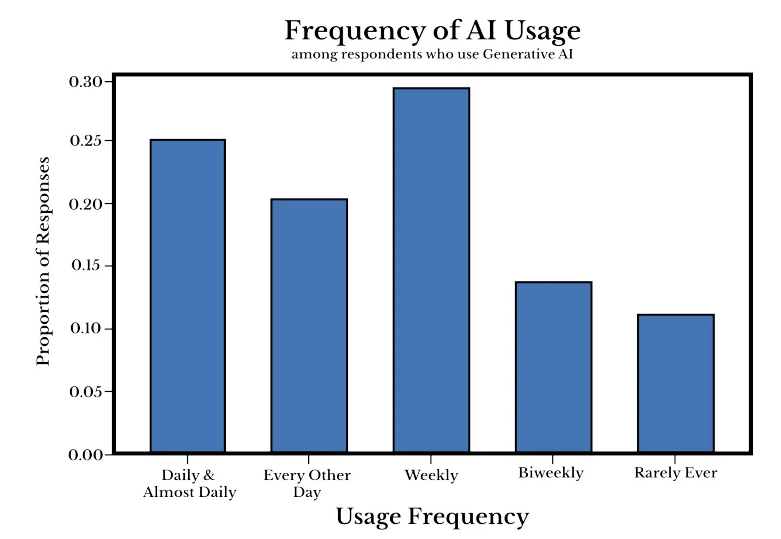Harvard University, the world's top university, is undergoing a profound change caused by artificial intelligence. From classrooms to laboratories, AI technology is being integrated into Harvard's learning and research at an unprecedented speed, having a profound impact on education and future development. The editor of Downcodes will take you to find out and see how this AI storm swept Harvard.
Harvard University, the world's top university, is staging a vigorous AI revolution. From undergraduates to professors, from classrooms to laboratories, artificial intelligence is penetrating into every corner of campus life at an unprecedented speed. This revolution not only changes the way of learning and research, but also triggers deep thinking about the future. Let us take a look at how this AI storm swept Harvard.
Students’ enthusiasm for AI can be described as crazy. According to a survey by the Harvard Undergraduate Association, 87.5% of the students surveyed are using generative AI, and ChatGPT ranks first with a usage rate of more than 95%. These numbers tell us that AI has become an essential tool for Harvard students’ daily learning.

What do students use AI for? From answering general questions to writing papers, programming, and even replacing the status of Wikipedia and Google. Interestingly, a quarter of the students spent less time going to the office to answer questions and read materials because of AI. It seems that AI is not only a learning assistant, but also a tool for laziness.
But AI brings not only convenience, but also anxiety. 35% of students are worried that their classmates will use AI to gain unfair advantages, and 45% are worried that AI may affect their future career prospects. What's more, 40% of students believe that AI may surpass humans in various fields within 30 years. This level of concern is comparable to the fear of pandemics and nuclear war.
Faced with this situation, Harvard University has proposed a series of countermeasures: providing all students with free access to AI, formulating clear rules for AI use, setting up AI-related courses, and even considering providing psychological counseling for patients with AI phobia.
The professors were not idle either. From computer science to psychology, from astronomy to economics, professors in various fields are actively embracing AI. Some use AI to assist research, some use AI itself as the research object, and some simply use AI to prepare lessons. For example, some professors use ChatGPT to understand complex technical papers. This is simply trying to do the same thing, but the other side is doing the same!
Of course, Harvard University is also promoting the development of AI from an institutional level. They have established specialized research institutes and invested huge sums of money. Some professors have even defected to technology companies for this purpose. While Harvard’s funding may be a drop in the bucket compared to the industry, it’s working hard to find its place in the AI race.
Harvard University's AI revolution not only demonstrates the huge potential of artificial intelligence, but also triggers people's profound thinking about future technological development and social ethics. This transformation is still going on, and its final direction deserves our continued attention.